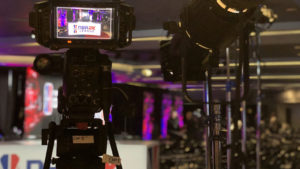Corporate event planners stand as the architects of unforgettable moments in the business world. Their role transcends mere coordination; they are curators of experiences that drive engagement, foster connections, and amplify brand identity. Here’s an in-depth exploration of the essential skills, challenges, and strategies that define the realm of corporate event planning, tailored specifically for seasoned professionals and aspiring planners alike.
The Core Skills of Corporate Event Planners
Creative Vision: Corporate event planners must possess a keen eye for creativity, capable of conceptualizing unique themes, innovative formats, and engaging activities that resonate with diverse audiences.
Logistical Expertise: Meticulous attention to detail and strong organizational skills are paramount for managing complex logistics, including venue selection, vendor coordination, budget management, and timeline execution.
Effective Communication: Clear and concise communication is essential for building rapport with clients, understanding their objectives, and collaborating seamlessly with vendors, sponsors, and stakeholders.
Adaptability: In a dynamic environment where unforeseen challenges are inevitable, corporate event planners must remain flexible and adaptable, ready to pivot strategies and problem-solve on the fly.
Strategic Thinking: Beyond the logistical details, event planners must align event objectives with broader business goals, devising strategic plans to maximize ROI, brand impact, and attendee satisfaction.
Navigating Challenges in Corporate Event Planning
Budget Constraints & Client Expectations
Balancing client expectations with budgetary constraints requires resourcefulness and negotiation skills to deliver exceptional experiences without compromising financial goals.
Managing client expectations and addressing feedback with professionalism and diplomacy is essential for building trust and maintaining long-term partnerships.
Vendor Relationships
Cultivating strong relationships with reliable vendors and suppliers is key to ensuring quality service and seamless execution throughout the event planning process.
Time & Risk Management
Efficient time management is critical for juggling multiple tasks and deadlines, from initial concept development to post-event evaluation and follow-up.
Anticipating and mitigating potential risks, such as inclement weather, technical glitches, or last-minute cancellations, requires proactive planning and contingency strategies.
Harnessing Innovation and Trends
Technology Integration: Embracing emerging technologies, such as event management software, virtual reality, and livestreaming platforms, can enhance engagement and extend the reach of corporate events.
Sustainability Initiatives: Incorporating eco-friendly practices, such as waste reduction, carbon offsetting, and sustainable sourcing, aligns with corporate social responsibility values and resonates with environmentally conscious attendees.
Personalization: Tailoring event experiences to individual preferences through personalized content, interactive elements, and data-driven insights fosters deeper connections and enhances attendee satisfaction.
Hybrid and Virtual Events: Embracing hybrid and virtual event formats allows corporate event planners to reach global audiences, reduce costs, and adapt to changing circumstances, such as travel restrictions or health concerns.
Continuous Learning and Professional Development
Staying abreast of industry trends, best practices, and emerging technologies through workshops, certifications, and networking events is essential for corporate event planners to maintain a competitive edge and deliver cutting-edge experiences for their clients.
As the architects of transformative experiences in the corporate world, event planners play a pivotal role in shaping the future of business gatherings. By honing their skills, navigating challenges with confidence, and embracing innovation, corporate event planners can elevate their craft to new heights, creating meaningful connections and leaving a lasting impact on attendees, clients, and stakeholders alike.



